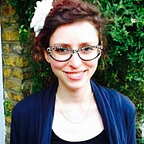How do you decide what to include in your CPD?
The first time I ever ran training for fellow teachers was towards the end of my NQT year. I’m pretty sure it was in the summer term as I remember it being sunny and warm — and I’d had my first form for a year by then.
Our school was trying a new approach to INSET days, with teachers asked to plan and deliver mini sessions on particular topics that everyone else could choose to attend — moving away from the usual “one size fits all” approach.
The topic was on the value of role play in PSHRE lessons. I’m a science teacher.
I was, quite naturally, terrified.
So to make it less overwhelming a prospect, I decided to just treat it like any normal lesson. With clear objectives, broken down into knowledge and skills (know that… know how to…). With opportunities to test that new knowledge as well as practice and get feedback on those new skills. And crucially, to get buy-in from the start through personal relationships and a clear sense of why it was useful.
It worked. I survived. I even received some positive feedback from a long-serving colleague, along the lines of “I used to think role play was one of those pointless gimmicks, but actually now I can see how it can be incredibly valuable in PSHRE lessons so they’ve thought through ways to deal with those difficult situations in case they’re ever in them.” Definitely not a direct quote. But captures the spirit of what I was trying to get across.
Since then I have had a lot more experience delivering CPD in my school and in others, but also crucially of working in ITE. When I first started working as a university Subject Tutor, training new science teachers, I experienced a bout of full-on impostor syndrome. I’d only applied after reading an article about the gender pay gap that suggested that women tend not to apply for jobs unless they meet all the requirements. So I decided to apply for the next role that looked interesting but that I thought I was unqualified for. To my utter surprise, they offered it to me — they believed I could do the job.
I still didn’t. So I read a lot of research about teaching and about CPD. I thought a lot about my own experience, and talked with colleagues about theirs. I also considered the journey of a new teacher, and how their needs evolve over the course of their first year — and beyond.
I soon realised that treating teacher training like any other lesson wasn’t enough. I started drawing little Venn diagrams to help me conceptualise what I had learnt through reading and experience.
I found that new teachers are initially concerned with two things: subject knowledge (especially physics) and behaviour. Whereas more experienced teachers were most interested in pedagogy (and often also still physics subject knowledge). And so I tailored my approach according to my audience, gradually building up the pedagogy quotient with my trainees.
A few years ago I moved into primary education, and this has once again made me revisit my approach to CPD. I found quite quickly that primary colleagues are more likely to have excellent general pedagogical knowledge, and knowledge of how children learn, than their secondary counterparts. But they are less likely to be confident in their science subject knowledge, or science-specific pedagogy. I’ve also found that the ‘working scientifically’ strand of the curriculum is often not as embedded as it could be, at both secondary and primary.
So now I have a menu of things I might focus on in my CPD, which I choose from based on who it’s for, what they want from it, how long it is, etc.:
- Subject knowledge (the scientific knowledge — and understanding)
- Pedagogical content knowledge (ways of teaching the science — can be specific to a topic or more general)
- General pedagogical knowledge (ways of teaching in general — including behaviour management)
- Curriculum knowledge (what children need to know at different key stages — and how to challenge pupils without just teaching next year’s content)
- Knowledge of how children learn (at different ages and including pupils with SEND)
- Working scientifically (ways of developing children’s understanding of what science is and what scientists do)
This is not an exhaustive list by any means, but I find a small number of key categories helpful when planning.
What have I missed? Anything you’d recommend me reading? Thoughts welcome as ever!
